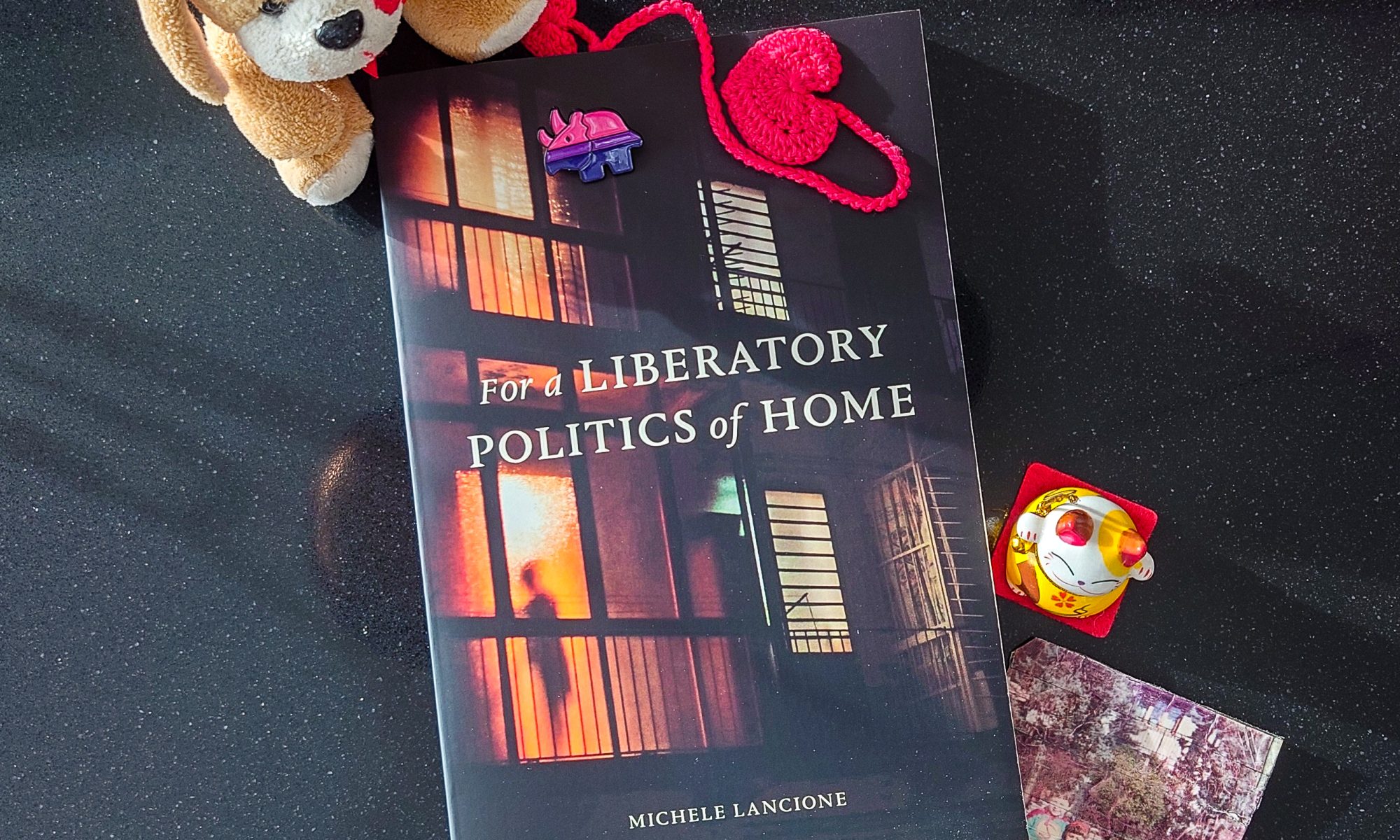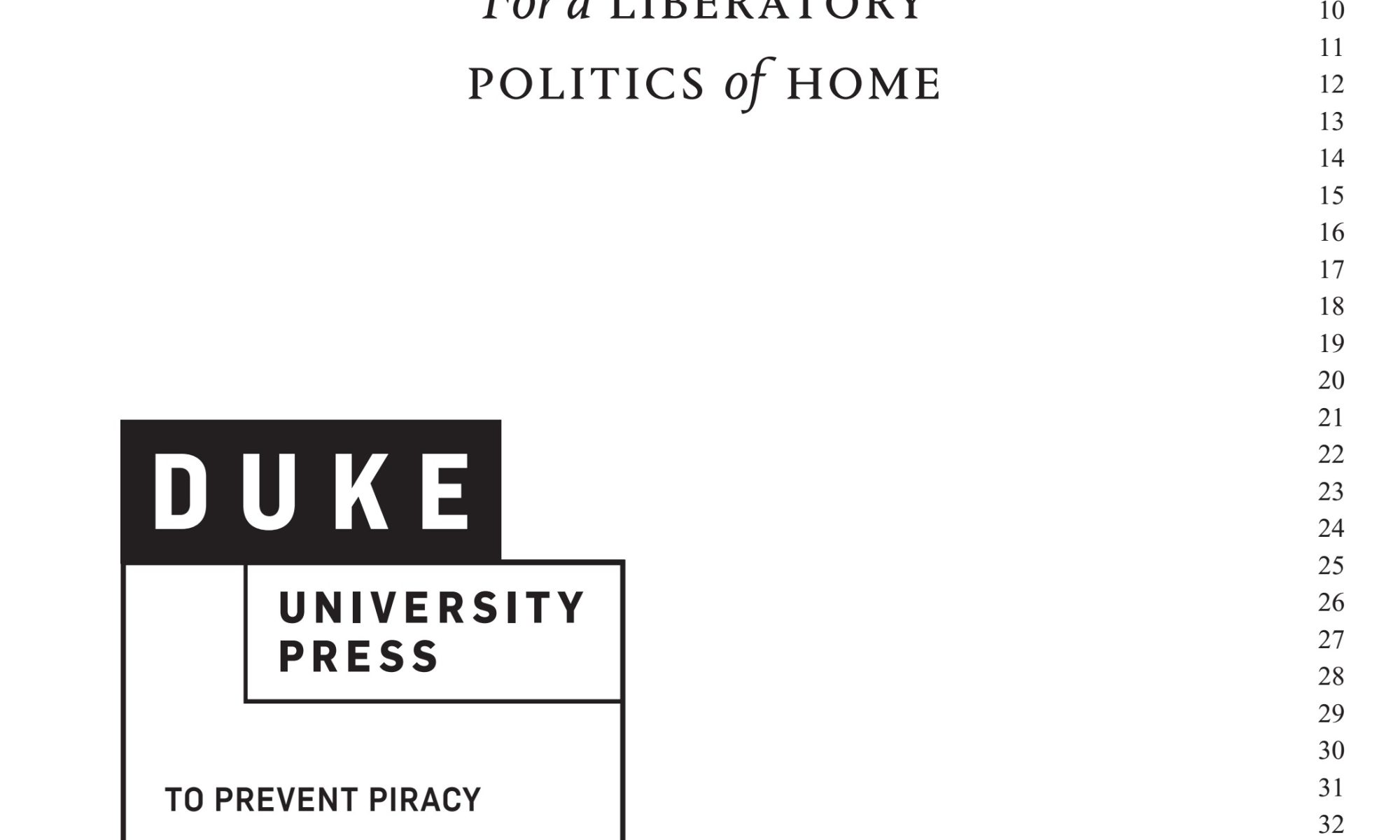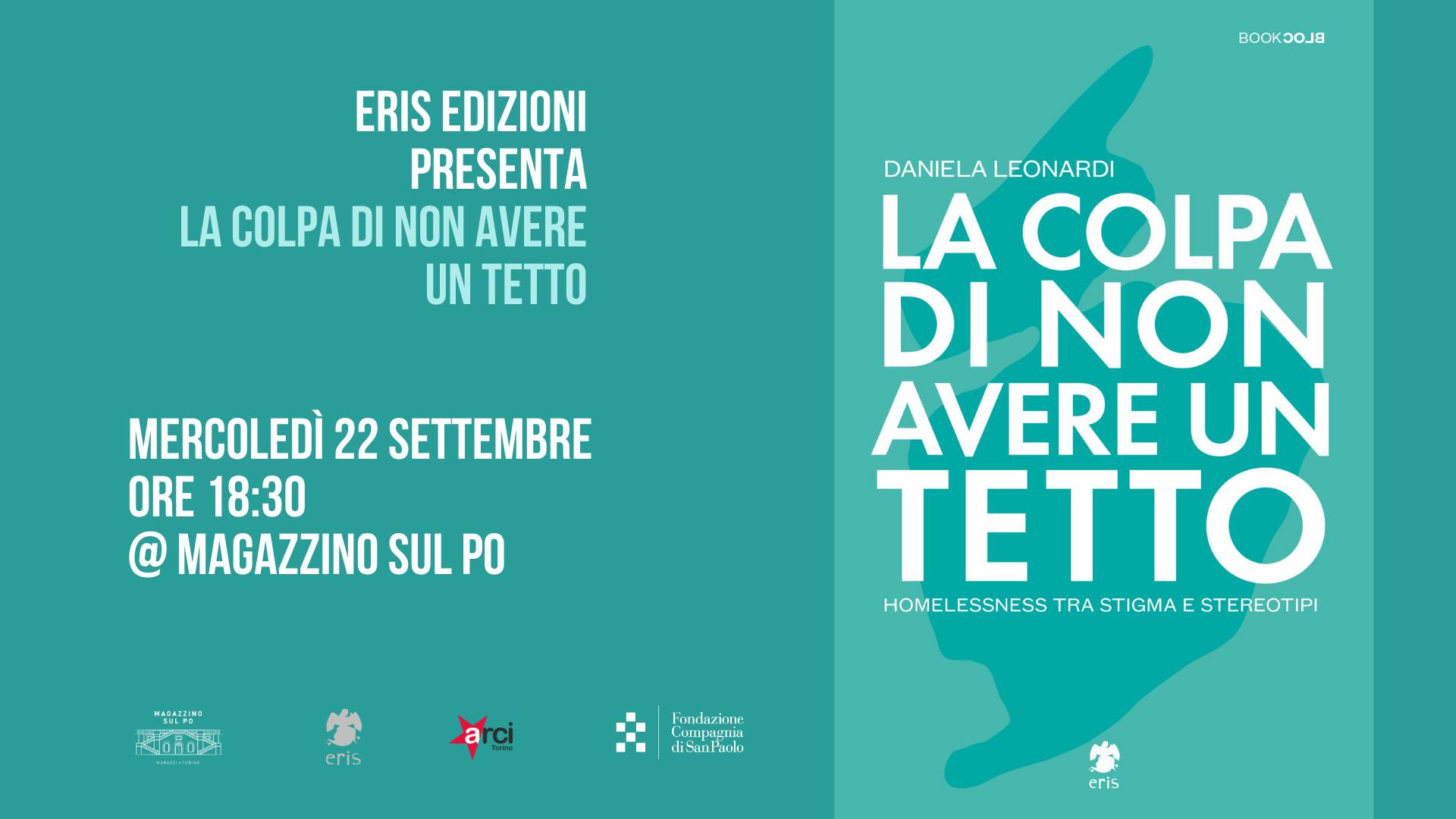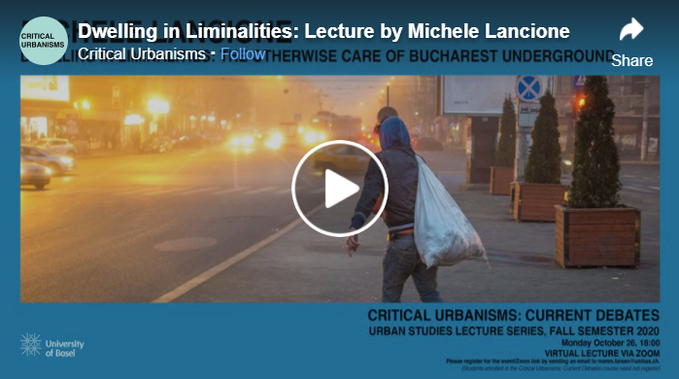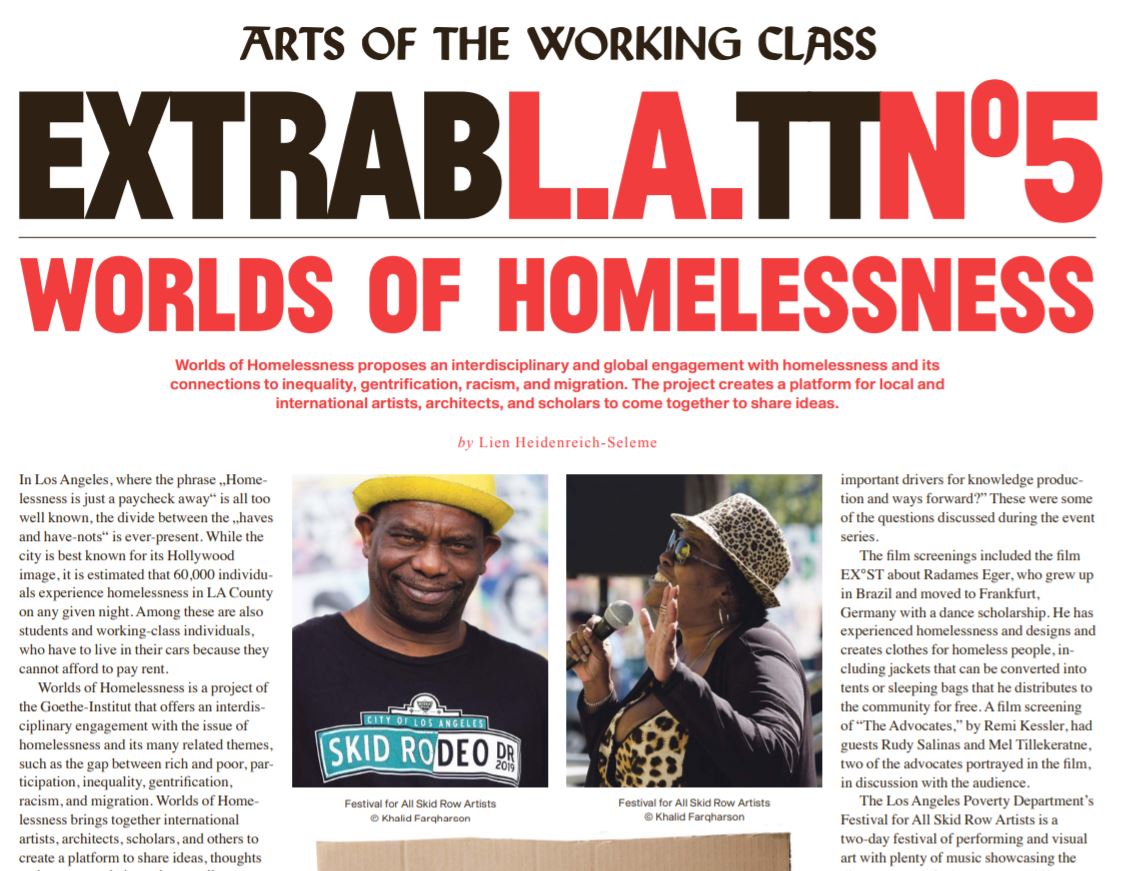I am so proud and energized by the launch of the Radical Housing Journal: a new, peer-reviewed, open-source publication that cuts across the academy and housing movements internationally.
Together with a feminist, anti-racist and horizontally organized collective made of 13 people (10 women, 3 men) scattered across the globe, we have been working very hard in the last three years to bring this project to fruition. Following the successful launch of our first issue at the 2019 AAG in Washington, we are now actively looking for high quality contributions to be published in 2020, addressing the root causes of housing injustice, its experiences and resistance.
The RHJ is a complex machine that aims to work for radical politics both within its own structuring and mechanisms of knowledge production, and through the support of direct actions in the realm of housing resistance.
Below, you can read the editorial that the RHJ Editorial Collective wrote to present the Journal to its readers, in issue 1.1. Issue 1.2 will be out in September. To know more about how we work, feel free to visit our website: www.radicalhousingjournal.org.
Introducing the Radical Housing Journal
RHJ Editorial Collective
PUBLISHED IN ISSUE 1.1 // EDITORIALS
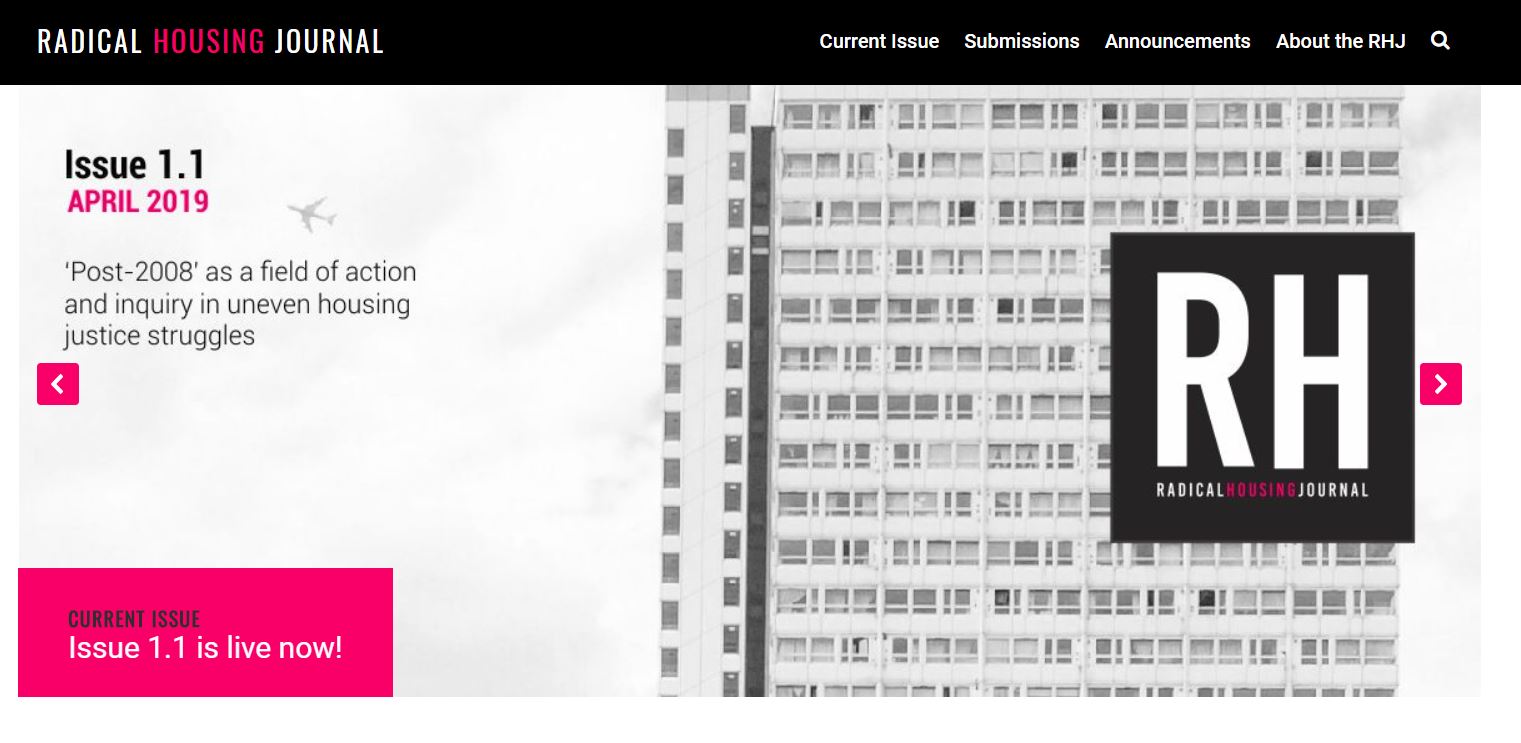
The idea for the Radical Housing Journal emerged in 2016 from few but passionate conversations in activist and scholarly spaces. From this, the idea developed at a dizzying speed, and the collective grew from two to five to 13 committed scholar-activists spread across the globe. Most of us did not know each other before joining the journal and many of us have never physically met. In under three years, we have set up an editorial collective, managed a complex web of tasks and projects (related to financing, web-site, and much more), received an overwhelming number of submissions, and are now proud to present our first issue.
The urgency of the project is obviously also a product and response to the level of mobilization around the fight for the right to housing and the city that has been taking place in recent years worldwide. Perhaps, the RHJ was, in a sense, bound to happen. This said, many of us have been involved in radical housing politics and politically engaged research before concepts such as gentrification became such hot topics. For a very long time we have lacked a genuinely open place to discuss housing as a practice in the making, as a space of contestation, and as a politics in its own regard, beyond the calculus of academic citations and the confinements of normative urban studies and housing theory. Crucially, we have lacked a space that scholars, scholar-activists, activists, artists and many more could use to debate ideas, advance knowledge, theory and practices around a radical approach to housing.
For us, that ‘radicality’ lies in how we approach housing as a fundamentally political question, inseparable from implicated, everyday practices of inhabiting space and challenging the forces that make the world unhomely and uninhabitable. It also lies in the journal’s capacity to be put to use by its makers and readers. It is a radicality that has its own political orientation – as clearly expressed in our Manifesto – which pivots around the following points.
First, for us, housing and home are unalienable under any circumstance. There is not much to add to this point; we believe that any form of forced eviction is wrong, and that any form of housing insecurity (as defined by the ones experiencing it) should be contested.
Second, we believe that given the complexity and the potentiality of housing to be absorbed into racial capitalism, thereby catalyzing many forms of exploitation, accumulation, imperialism, raciality, and annihilation – that we need to go beyond the analysis of what problems already exist. Rather, we underline the urgency in contributing to knowledge-sharing for transformation and housing justice. The RHJ wants to create a space that challenges the study of conditions and processes that render housing alienable, combining heterogeneous theoretical standpoints. We therefore welcome transdisciplinarity and transnational approaches to conceptualizing the structural aspects and everyday elements of housing, housing justice, and resistance. We also encourage different methodological approaches, and provide tools for radical epistemology that make use of these methods.
Third, the RHJ promotes a non-exploitative, anti-capitalist, ecologically oriented, antiracist, feminist, decolonial, and horizontal politics in its own structure and functioning. We are autonomous in our making, politics, and financing. Our two Collectives (Editorial and Extended) are horizontally structured and open for new members to join. Internally, these organizational orientations are not always straightforward, and create productive, ethical, and practical tensions that, we hope, result in a more inclusive publication.
The Journal was designed to welcome different kinds of content and elicit conversations across different domains of inquiry and action. The first two sections host substantive original works and are blind peer reviewed (by one academic oriented and one activist-based), while the latter two sections offer for a more “immediate” style (which is reviewed internally by the issues’ Editors). These are:
The long read / Focus on critical analysis and theory-making
For papers focused on theorizing housing resistance and activism worldwide. Papers aim for theoretical innovation and conceptual finesse driven by speculative, case-specific or comparative arguments.
Retrospectives / Focus on specific cases, histories, actions
For papers oriented at reconstructing, in detail, particular histories of movements, organisations and/or actions worldwide. Papers aim for historical rigour and depth.
Conversations / Reflections from the field of action and organisation
Pieces written collectively, to reflect on specific actions and strategies. We welcome reflections and debates on the challenges of particular organising approaches and practices.
Updates / Reviews, provocations, updates on actions
For reviews of books, films, art, and more; as well as updates on current actions.
Launching a new Journal has required more than two years of intensive collective labor and energies, but we are very proud of what we have set up. We aimed high and for the best quality. Of the more than 70 submission that we received for this first issue, we selected 15, which were then thoughtfully peer reviewed, editorially assessed, and accepted or rejected accordingly. A similarly rigorous editorial process was followed for Issue 1.2, ‘Interrogating Rent’, which we will publish in the Autumn.
This massive collective labor is what makes the RHJ; we want to treasure and nurture that collectivity. For this reason, we have designed the Journal with care towards future forms of collective ownership that can last beyond individual editors, and beyond the struggles presented in its pages. We have done so with an attention to the politics of publishing across the boundaries set by the Academy and across geographies. This is a Journal that is designed to host and to foster intellectual and action-oriented debates around radical housing with an attention to geographic specificities and an orientation to experimental and productive comparisons. We want for it to be our sparkling and shining home. And we want this home to be radically open, which we understand in two key ways. First, all content published in the RHJ is open access and will stay so, against the logics of enclosure of much academic publishing, where significant knowledge remains trapped behind paywalls. Second, we want to keep the RHJ open by valuing the work that goes into thinking, researching and writing about and from housing struggles.
Crucially, the RHJ aspires to build a system of self-financing that sustains its independent, radical politics both internally and externally, and offers a small compensation to its writers. Please join our fundraising campaign by donating, if you can, or help by spreading the campaign around.
If you see yourself in our Manifesto, then do get in touch. We await hearing from you and working with you, wherever you are. Our open call for papers for subsequent issues are now live here. Feel free to submit papers and ideas, and please do get in touch about anything else (also about joining our Collective, or becoming a RHJ reviewer) using our contact page, or drop us a line at collective@radicalhousingjournal.org. And, don’t forget to follow us on twitter @Radical_Housing.
We hope that you will enjoy and join this radical endeavour as readers and critical interlocutors, beginning with our Issue 1.1: ‘Post-2008’ as a field of action and inquiry in uneven housing justice struggles. Our second Issue (1.2) ‘Interrogating Rent: structures, struggles and subjectivities’ is well into production and will be published in September 2019.
In Solidarity,
The RHJ Editorial Collective
Erin, Mara, Mel, Meli and Michele

